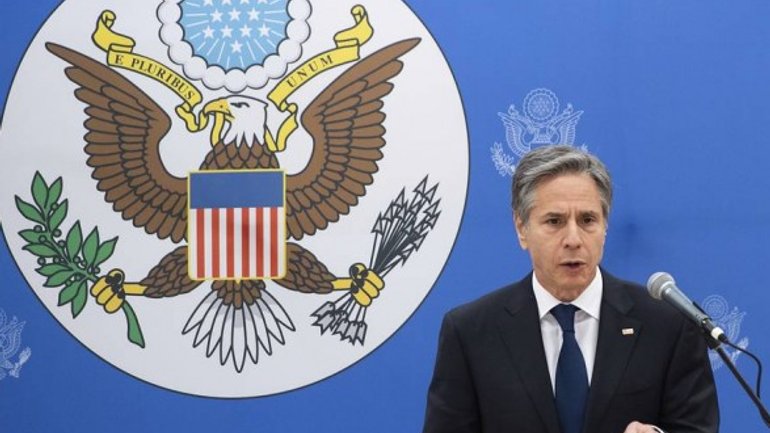The U.S. State Department condemns repression in annexed Crimea

US Secretary of State Anthony Blinken wrote about this on Twitter on May 18 in connection with the anniversary of the deportation of Crimean Tatars, UNN reports.
"We condemn Russia's violations of (human rights) in (occupied) Crimea, especially on May 18, when we remember the 77th anniversary of Stalin's deportation of many Crimean Tatars from their native Peninsula. We expect future participation in the Crimean platform summit in August. Crimea is Ukraine," Blinken wrote.
The political and diplomatic path of the De-occupation of Crimea involves several tools, including sanctions pressure. The United States is one of the leading countries that use this mechanism. The Crimean platform aims to consolidate international efforts, where U.S. support will be the key to the success of this initiative.
The Crimean platform is a diplomatic initiative of Ukraine, and in the future — an international coordination mechanism for returning the issue of Crimea to the agenda, protecting human rights in Crimea and promoting the de-occupation of the peninsula.
On February 26, 2021, Volodymyr Zelensky signed a decree “on certain measures aimed at de-occupation and reintegration of the temporarily occupied territory of the Autonomous Republic of Crimea and the city of Sevastopol”, which decided to form an organizing committee for the preparation and holding of the Constituent summit of the Crimean platform in Ukraine. According to the document, the Ministry of Foreign Affairs coordinates Ukraine's participation in the activities of the Crimean platform.
The chairman of the Organizing Committee for the preparation of the Constituent summit of the Crimean platform is the minister of foreign affairs of Ukraine Dmytro Kuleba.
The Crimean platform is expected to be presented at the Parliamentary Assembly of the Council of Europe.
The date of the Founding Summit is set for August 23, 2021, and a declaration may be adopted based on its results.
Recall that the Russian occupation authorities in Crimea do not stop religious harassment of Muslims, Greek Catholics, believers of the OCU, as well as representatives of other faiths.
This is stated in the Report on Religious Freedom in the world for 2020, published by the U.S. State Department.
As of October last year, 69 Crimean residents remained behind bars for their involvement in the Muslim political organization Hizb ut-Tahrir, which is banned in Russia but is legal in many countries, including Ukraine.
In addition, two of Jehovah's Witnesses were serving prison sentences for their faith.
Representatives of the Ukrainian Greek Catholic Church and other faiths are being oppressed by the occupation authorities. Many religious communities have essentially been driven out of the occupied peninsula by the introduction of new registration requirements.
Only the Ukrainian Orthodox Church of the Moscow Patriarchate was exempt from these demands, the report emphasizes.









